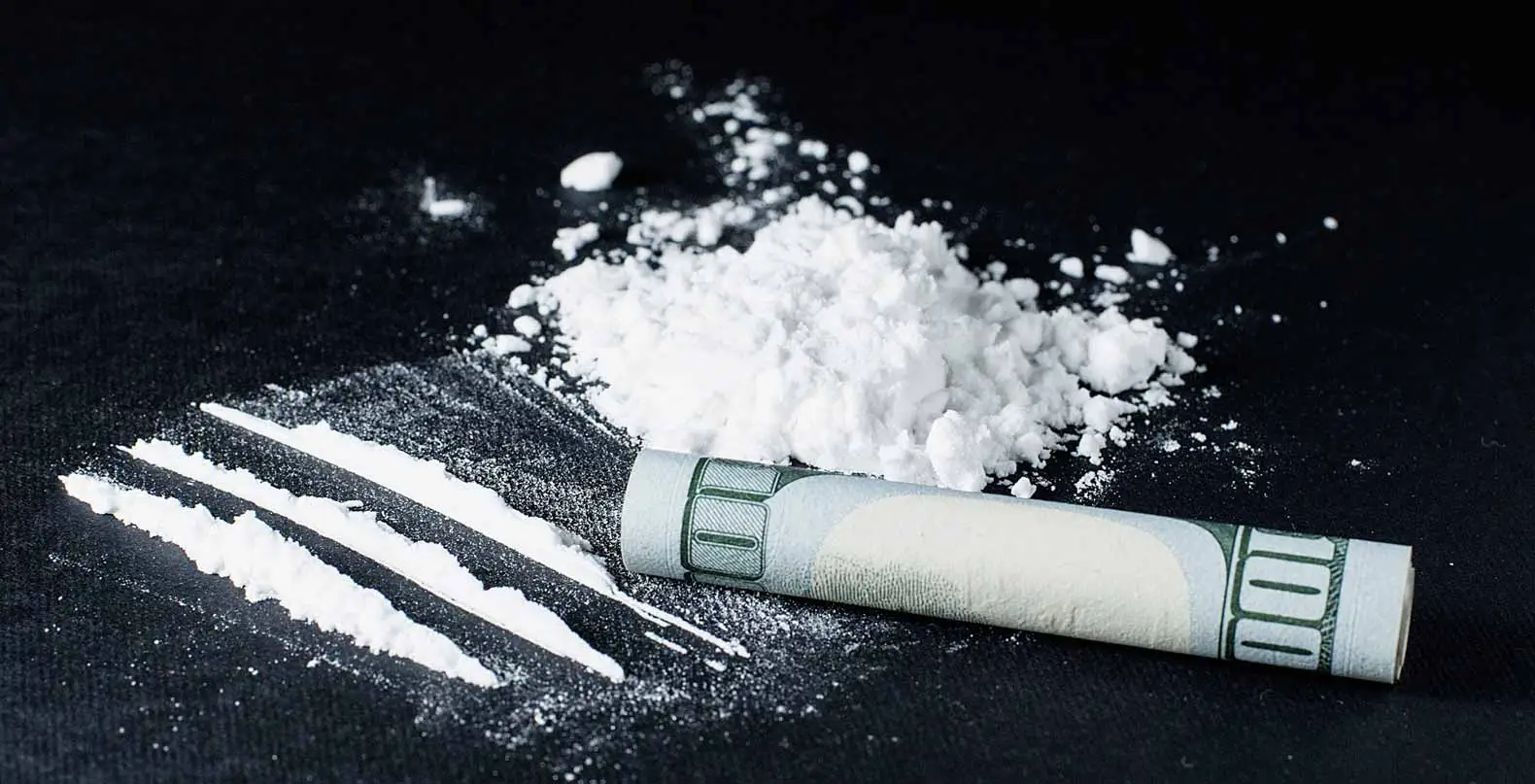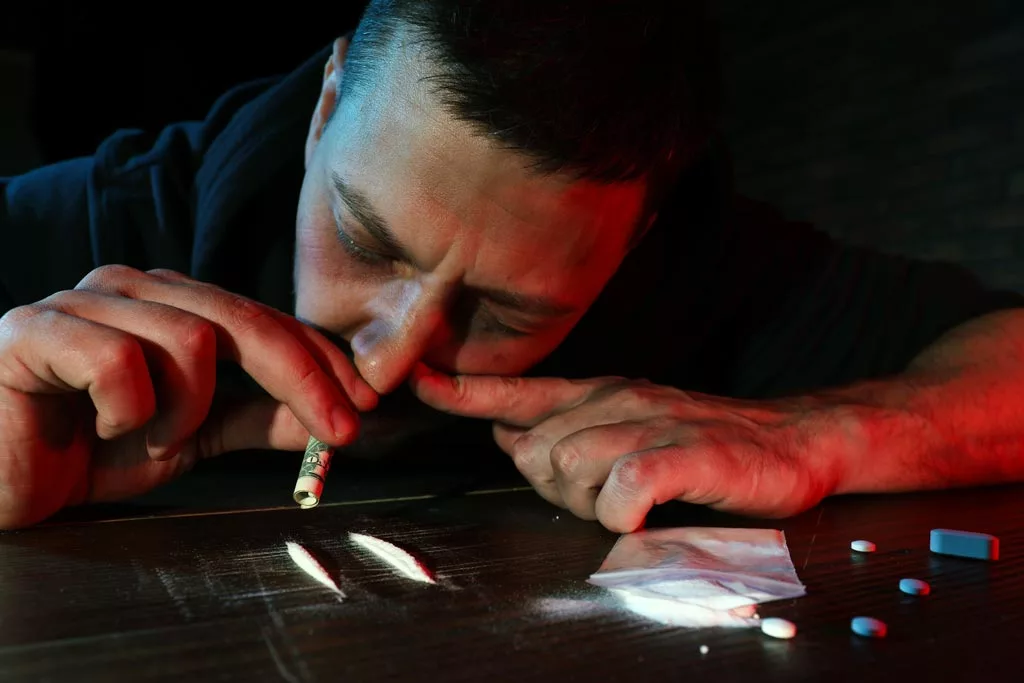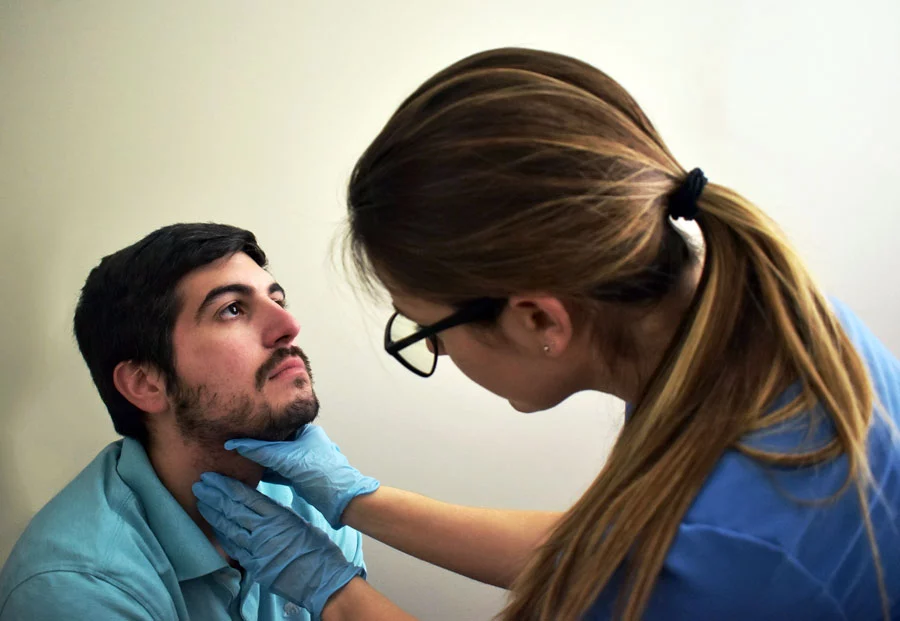What is Cocaine?
Cocaine is an incredibly powerful and addictive stimulant drug that is derived from the native South American coca plant. While this drug can be medically used as a local anesthetic, recreational use of cocaine is illegal.
Cocaine addiction has become a key issue in society. However, many of those who have become dependent on it want to quit. According to the National Institute on Drug Abuse (NIDA), an estimated 5.2 million people ages 12 and over reported that they had used cocaine within 2020.
These numbers reflect the reality of the intense grip this drug has established on the nation, as cases of cocaine abuse only continue to grow. Fortunately, there are several methods of treatment for cocaine addiction available today; the most critical, of which, is cocaine detox.
A cocaine detox center offers people a chance to overcome their physical dependence on this drug in a safe and controlled environment, giving them their best chance at a successful recovery and long-term sobriety.
Understanding Cocaine Dependence and Addiction

While the terms dependence and addiction are often used interchangeably, they do not necessarily have the same meaning. Dependence happens as a physical change. When someone becomes dependent on a substance, they need to continue taking it to function normally.
The relationship between these two terms is that, with dependence, a person becomes more prone to developing an addiction. Addiction is a condition that drives people to seek the substance they crave without caring for the well-being of themselves or others.
As a result, individuals display behavior that is uncharacteristic of their personality. These uncharacteristic behaviors may include things like breaking the law and missing important meetings and appointments. When someone’s dependence starts impacting their lives to such a degree, one can assume that addiction has seized hold of them.
Cocaine, in particular, is a relatively easy drug to become addicted to. When someone consumes cocaine, it speeds up their heart and makes them think faster. This is because this drug is a stimulant, boosting a person’s alertness due to its interaction with their brain.
When taking cocaine, this drug floods the brain with dopamine, the chemical responsible for giving us feelings of pleasure. Usually, the brain produces it in controlled amounts to reward us for specific tasks.
However, when cocaine causes the brain to flood with this chemical, it can lead to problems. The excess of dopamine produced by cocaine leaves a person’s brain cells unable to communicate with one another.
Over time, a person’s brain becomes less and less sensitive to dopamine. This loss of sensitivity means that the individual no longer feels pleasure the same way. At this point, a chemical dependency to this drug has begun to develop.
The person can no longer enjoy the things they used to without taking cocaine to produce the excess dopamine. Over long periods of time, this dopamine flood damages the brain significantly.
It slows the uptake of glucose into the brain’s organic tissue and leads to the massive destruction of neurons. This can result not only in both a dependence and a cocaine addiction, but in permanent brain damage, as well.
Side Effects of Cocaine Abuse

Someone who is struggling with a cocaine addiction may experience a number of unpleasant side effects. These may occur both from short-term misuse of this drug, as well as long-term habits of drug addiction and abuse.
Some of these short-term side effects include:
- Extreme sensory sensitivity.
- Intense emotions.
- Increased anger/irritability.
- Paranoia
- Loss of appetite.
Over longer periods of time, chronic cocaine abuse may cause individuals to develop more serious side effects, such as:
- Headaches
- Convulsions and seizures.
- Increased blood pressure.
- Heart disease, heart attack, and stroke.
- Mood problems.
- Changes in sexual libido.
- Lung damage.
- HIV or hepatitis from using unsanitary injecting paraphernalia.
- Bowel decay from oral consumption of cocaine.
- Loss of smell, nosebleeds, runny nose, and difficulty swallowing from snorting cocaine.
Furthermore, taking too much cocaine in a short period of time can result in a cocaine overdose, which may cause respiratory depression, hallucinations, stroke, seizure, coma, or even death. If you notice any of these signs in yourself or a loved one, call for emergency help immediately.
What is Cocaine Detox?
Cocaine detox is the first step in recovering from a substance use disorder. As mentioned above, physical dependence changes the way a person’s body functions. To get back to normalcy, a person needs to completely rid their body of this substance.
Unfortunately, this is easier said than done. Because of a person’s dependency on this drug, overcoming cocaine addiction can result in the production of withdrawal symptoms.
These can be extremely uncomfortable physical and mental side effects that can make quitting this drug use feel impossible, especially when attempting to do so on one’s own. However, while cocaine detox can be a challenging process, it is achievable with the right resources and help.
Cocaine detox centers offer that necessary support. These treatment centers exist to help individuals who want to overcome their substance abuse. Most of these facilities have staff that are well-versed in dealing with cocaine dependence and recovery.
They also have medical and clinical personnel that can guide a recovering individual through the stages of detox. Each person’s journey through detoxification is different. The intensity of withdrawal is also unique to each client.
Because addiction is such a subjective disease, most treatment programs will utilize personalized treatment systems that cater to their client’s individual needs. Of course, a cocaine detox program will provide all individuals a safe and secure place to clear their body of this drug.
This will generally include those going through these rehab programs being carefully medically monitored by licensed clinical professionals. If complications arise, on-site staff can quickly react to them.
Cocaine Withdrawal Symptoms

Detox focuses on helping individuals deal with withdrawal. When a person stops using a substance after they develop dependence on it, they may have to withstand a significant and uncomfortable period of time before their body finally gets it out of its system.
Depending on the level of dependence, a user may experience elevated withdrawal symptoms that produce strong cocaine cravings. Generally, cocaine withdrawal can result in several different side effects.
However, these symptoms do not apply to every recovering individual. One person’s withdrawal may be entirely different from someone else’s withdrawal. Possible side effects that may occur during this period include:
- Depression
- Inexplicable anger and irritability
- Tremors, tiredness, and fatigue
- Erratic sleep or insomnia
- Difficulty concentrating
- Paranoia
- Suicidal thoughts
- Psychosis
Studies have concluded that cocaine withdrawal is not as physically taxing as other drugs. However, the mental toll can be severe and scary to someone in cocaine abuse recovery who is unprepared to deal with it. For those with a long-term cocaine addiction, these cravings can become unbearable.
Who Needs Cocaine Detox?
Cocaine detox is the first step to recovering from dependence. Individuals who have decided to change their lives for the better and leave their substance use disorder behind need detox as a starting point.
Thus, anyone who is choosing to no longer abuse cocaine can significantly benefit from the comprehensive services offered by a cocaine detox center.
While this may only be the first step in their addiction treatment process, these programs help them build a solid foundation to receive ongoing support from overcoming and abstaining from harmful substances.
It lays the foundation for the rest of their journey by ensuring that they do not have to deal with relapsing because of their dependence. Individuals who participate in this level of cocaine addiction treatment learn how to combat the psychological impact of quitting their drug abuse.
How Long Does a Cocaine Detox Process Take?
Complete detox can take up to six months to complete. Breaking physical dependence may take anywhere between seven (7) and ten (10) days. However, the amount of time taken to overcome a reliance on this substance can vary depending on several factors, including:
- If the individual has underlying physical or mental conditions
- How the drug was used (smoking, injecting, snorting, etc.)
- The purity of the substance ingested
- How often the person used cocaine
- How long they had been using the drug regularly
- If the person was simultaneously abusing other drugs
Furthermore, a detox program will usually focus on an individual’s progress through the general cocaine withdrawal timeline.
Cocaine Withdrawal Timeline

When considering cocaine withdrawal, professionals can usually break it down into three phases, each of which will produce its own side effects and complications as they occur. These include:
- The Crash
- Acute Withdrawal
- Post-Acute Withdrawal System
Phase 1: The Crash
The first phase, or “The Crash” stage of withdrawal typically happens within the first twenty-four (24) hours after the drug was last used. During this period, physical cocaine symptoms will be at their most prevalent.
The first phase may extend for as long as seven (7) days, depending on the abovementioned factors. During this stage, it is best to have a recovering individual regularly being monitored by a trained medical professional.
The feelings of despair and cravings for the substance ramp up in intensity quickly and usually peak before declining again. Self-imposed detox tends to fail at this phase since there is little in terms of accountability and monitoring.
Phase 2: Acute Withdrawal
The second phase can last for as long as ten (10) weeks after breaking physical dependence. During this phase, individuals will generally experience fewer physical symptoms of withdrawal.
However, while elements that might point towards someone struggling with a physical condition have faded, psychological symptoms may become more intense during this period. Depression and anxiety, for example, can begin to rapidly worsen.
Dysphoria and rapid mood swings may also become apparent, sometimes jeopardizing relations with others. Without clinical supervision, this phase tends to take longer to get over.
Phase 3: Post-Acute Withdrawal System
Individuals that get to this stage but refuse to undergo professional treatment risk falling victim to Post Acute Withdrawal Syndrome (PAWS).
This syndrome may last up to a year or more after leaving the substance behind. It’s not a constant or chronic condition, but rather one that surfaces sporadically.
This third phase of withdrawal may continue for up to six (6) months. During this time, mental conditions may grow even more ingrained. Depression and mood swings may start becoming more evident in the person’s interactions with others.
However, in most individuals, the third stage is less intense and seems closer to a full recovery. For individuals that have cut off heavy cocaine use without medical or therapeutic treatment, this third phase can last longer and be more apparent in their behaviors.
Understanding the Detox Process in Cocaine Addiction Treatment

A cocaine detox center will have trained personnel that can help an individual overcome their substance abuse. Managed withdrawal and detoxification have a far higher chance of success than trying to go it alone.
Cocaine is a dangerous drug that requires professional support to get over. While every individual undergoing detox will likely have their own specific treatment plan, most of these cocaine rehab centers will follow a general set of steps in this process, including:
- Check-in and evaluation
- Treatment overview customization
- Medical stabilization
- Post-detox recovery
1. Check-In and Evaluation
Initially, a visitor will meet with staff that will go through their medical records. Staff usually interview incoming visitors to help them grasp the length of their disorder and what other factors may be impacting it.
Both medical and clinical personnel are involved in this process in order to cover all treatment bases. At this stage, the facility will collect the information it needs to start putting together a personalized care plan for the potential client.
2. Customized Cocaine Detox Plan
No two detox processes are entirely alike. Each person has individual needs to achieve success. Thus, a good cocaine detox program will prioritize providing personalized treatment plans that focus on providing the best recovery opportunity to their clients.
Usually, this means looking at the visitor’s past medical history and any other factors that may affect their success. At this stage, staff will look for the presence of dual diagnosis or co-occurring disorders, which are simultaneous mental health and substance use disorders.
According to the Substance Abuse and Mental Health Services Administration (SAMSHA), underlying mental conditions can significantly impact an individual’s chances of recovery. Thus, effective care will need to take this into account to deal with their clients’ specific issues.
3. Medical Stabilization
Withdrawal and official medical detox happen at this stage. Clinical staff remain regularly available to deal with any medical issues should they arise, allowing clients to access support from the facility if necessary.
Physical and psychological cravings will also be managed during this stage, helping minimize a client’s risk of relapse. This may be done through medication management, which will involve the administration of addiction medicines to help minimize withdrawal symptoms and cravings.
Many of the more severe withdrawal symptoms that a person may deal with will be psychological. Because these may continue well beyond the period that the person may have to deal with physical symptoms, clinical input is crucial to helping them.
Once a recovering individual no longer has physical symptoms that impact their ability to function in society, they are considered to be medically stable.
4. Post-Detox Recovery

Post detox recovery for a cocaine use disorder is less intensive than with other substances. In many cases, it may mean undergoing a therapeutic process to help heal from the psychological impact of substance use, and learn better coping skills in their day-to-day life.
This may also include participating in various treatment methods, including receiving treatment at an inpatient rehabilitation program, residential rehab center, or through outpatient care services.
Post-detox recovery at an inpatient treatment center will involve a similar level of regular clinical support, as well as participating in a number of therapeutic services, including:
- Individual therapy sessions
- Group therapy sessions
- Family therapy sessions
Residential treatment facilities will likely foster a similar recovery process, providing a primary counselor for emotional support. This treatment provider will be particularly helpful for those struggling with mental illness in addition to addiction.
Outpatient treatment, while less intensive than other levels of care, is more flexible. Cocaine addiction treatment offered at an outpatient level will likely involve participating in peer and sober support groups, as well as several mental health services.
Finding Cocaine Detox and Substance Abuse Treatment Services and Drug Rehab Centers Near Me
A professional detox center will focus on long-term recovery. Cocaine detox, while a way to recover one’s health, is not the end of the process. Instead, it’s the start of rehabilitation. Recovering one’s life means learning how to re-enter society as a contributing member.
If you or a loved one is struggling with cocaine addiction, it is important to find an addiction treatment center that is dedicated to serving all of your personal care needs.
Best Rehabs In Arizona is dedicated to offering a unique and customized approach to helping each of our clients overcome their substance abuse. Whether to cocaine or any other drug, our addiction treatment services offer the recovery support you need.
Contact us today to learn more about cocaine addiction, and find out how we can help you or your loved one achieve long-term sobriety.
